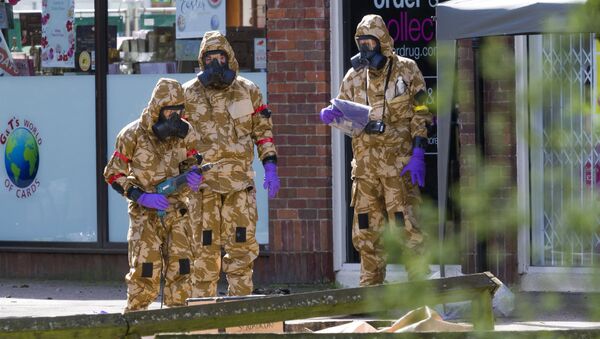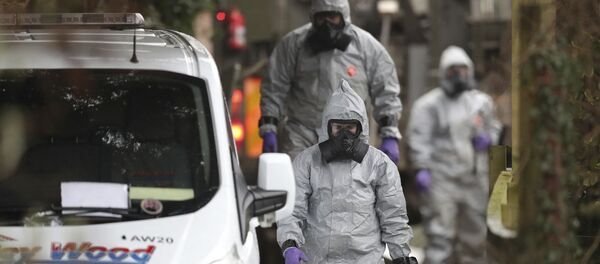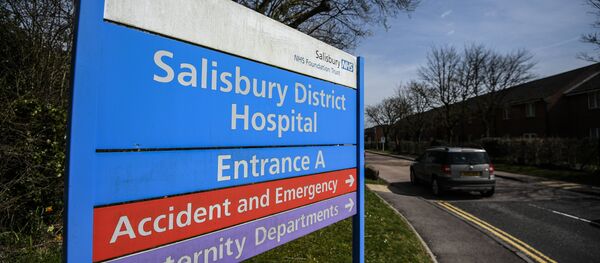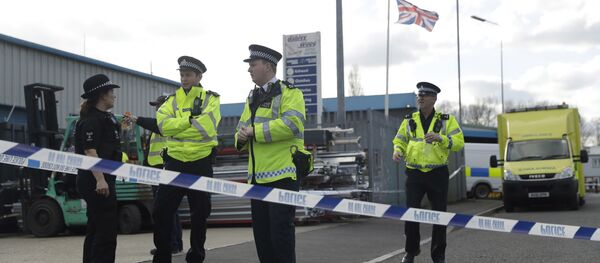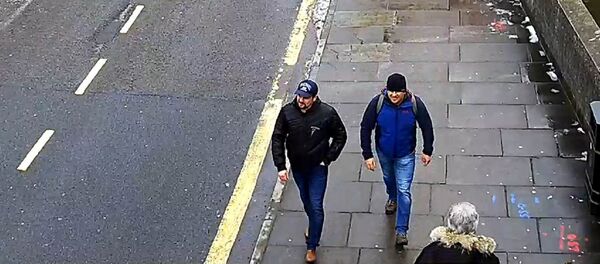In the interview, which aired on Thursday evening, Bailey says he was contaminated by the poison as he inspected the Skripals house, after they were found ill on a park bench in Salisbury city centre.
The British government and media were quick to blame the Russian state for the poisonings of Yulia and Sergei, declaring that the substance was the nerve agent a-234, or 'novichok' which had been smeared on the door handle of the Skripals’ house by two Russian military intelligence officers.
However for some, there are still many questions remaining in the British version of the Skripal case. Columnist for the Independent and Guardian newspapers, Mary Dejevsky spoke to Sputnik about her reservations with the British media’s representation and analysis of the Skripal case.
Sputnik: Mary you tweeted recently that the BBC Panorama programme aired on Thursday night and showing an interview with Detective Sergeant Nick Bailey was ‘close to propaganda’; what made you say that?
Mary Dejevsky: Although the UK doesn’t have a state television service, this came pretty close.
My particular problem with this programme was that it posed none of the questions that have been hanging in the air ever since the attack on the Skripals in Salisbury happened back in March.
There are an awful lot of questions that are open; there is a lot of the official version put out by the government which has been challenged, and rightly challenged because there are huge questions. But the programme on the BBC posed none of these questions.
Sputnik: Why do you think it is that there has been no real analysis from British mainstream media of the Skripal case?
But with the Skripal case it seems to me that there has been an extraordinary consensus from the very beginning. One of the reasons I think is that the government seemed so certain about its case, and supposedly they presented evidence which mobilized this international diplomatic action where there was coordination of countries expelling Russian diplomats who were, it was claimed, working undercover – undeclared members of the Russian security services – working under diplomatic cover.
Now it’s not clear to me because I think there have been reports from Germany for instance that there was no additional evidence provided by Britain other than what they presented to parliament which was extremely flimsy.
Sputnik: What questions remain unanswered in the Skripal case?
Mary Dejevsky: There are dozens of questions. One of the most obvious is that the CCTV footage of the two alleged GRU agents going from London to Salisbury and back again twice is highly selective.
The only CCTV footage that has been produced of the two has been, at the closest, half a kilometer away from the Skripals’ house. There is enormous questions, in my view, about the whole version of whether novichok or anything was put on the door handle of the Skripals’ house.
How come that they apparently went in and out of the house, it’s not clear at what times, but how come they were apparently found together collapsed on a bench several hours later as the victims of what was supposed to be a potentially fatal substance that could kill anyone that went near it, in minutes?
Sputnik: A letter was written to The Times on 14th March by Dr Stephen Davies, consultant in Emergency Medicine at Salisbury hospital, saying ‘May I clarify that no patients have experienced symptoms of nerve agent in Salisbury, and there have only been three patients with significant poisoning’ – this really is a discrepancy in the story is it not?
And there have been various attempts to square the circle, but to my mind none of them has been entirely convincing. We also have the question of the chemical weapons’ agency’s findings and whether the substance that the OPCW agency tested was actually the substance that the Skripals were poisoned with.
It doesn’t appear that there is a completely secure chain of evidence from as it were, start to finish, that nothing might have sort of inserted into the process. So there are all these questions and none of them were asked on the BBC programme.
Views and opinions expressed in this article are those of Mary Dejevsky and do not necessarily reflect those of Sputnik.
